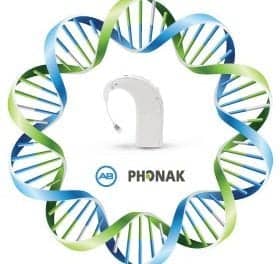Augusta, Ga – Research from the Medical College of Georgia at Georgia Health Sciences University (GHSU) indicate that cochlear implants may be a safe and effective option for some organ transplant patients who have lost their hearing due to their transplant-related drug regime.
The antibiotics and immunosuppressive drugs required by organ transplant patients can sometimes cause deafness, explained Dr Brian J. McKinnon, otologist and neurotologist at GHSU.
Antibiotics can destroy the finite number of dark cells in the inner ear. These cells produce the minute amount of fluid needed to help convert sound waves to neural impulses the brain can interpret. Apparently, these dark cells are very metabolically active, and antibiotics are designed to interfere with bacteria’s metabolic activity.
“When you destroy the ability to make fluid, the system no longer functions,” McKinnon said. Any sound patients may hear is incomprehensible.
Drugs that keep the immune system from attacking a transplanted organ can also leave the inner ear vulnerable to infection. In fact, cochlear implant patients typically get vaccinations to bolster their immune response to common infections since an electrode, connecting the device to the inner ear, can become a highway for bacteria and viruses. “If you do make the immune system work better, they may reject their organ,” McKinnon notes.
Consequently, only a few transplant patients worldwide have gotten cochlear implants. However, the new, small retrospective study provides more evidence that patients can restore their hearing without additional health risks if they wait at least 6 months after the organ transplant and take the right antibiotic before and after the cochlear implant procedure, McKinnon said. He and Dr Kenneth C. Iverson, chief resident in otolaryngology at GHSU, are co-authors of the study published in the American Journal of Otolaryngology. Two previous studies described experience with less than a dozen total patients.
The GHSU study focuses on two patients, including a 47-year-old woman who developed profound hearing loss 5 years after receiving a kidney from a living family member, when a severe infection put her in intensive care and required several powerful antibiotics. She received a cochlear implant 18 months after the infection and 6 years after her transplant; her treatment included an intravenous antibiotic before the surgery and an oral antibiotic for a week afterward, as well as continuation of her usual transplant-related medications. Her hearing was essentially normal 13 months later. She died 2 years after her implant from an unrelated health problem.
A 50-year-old man, who received a kidney from a deceased donor, experienced profound hearing loss 6 weeks after a severe brain infection. He received a cochlear implant seven months after his transplant and similar antibiotic therapy. About 75% of his hearing was restored 14 months later.
“This study adds to the growing evidence that successful cochlear implantation can be achieved in appropriately selected renal transplant patients,” McKinnon and Iverson write. They have continued to use the device selectively in transplant patients and plan a larger, retrospective study.



